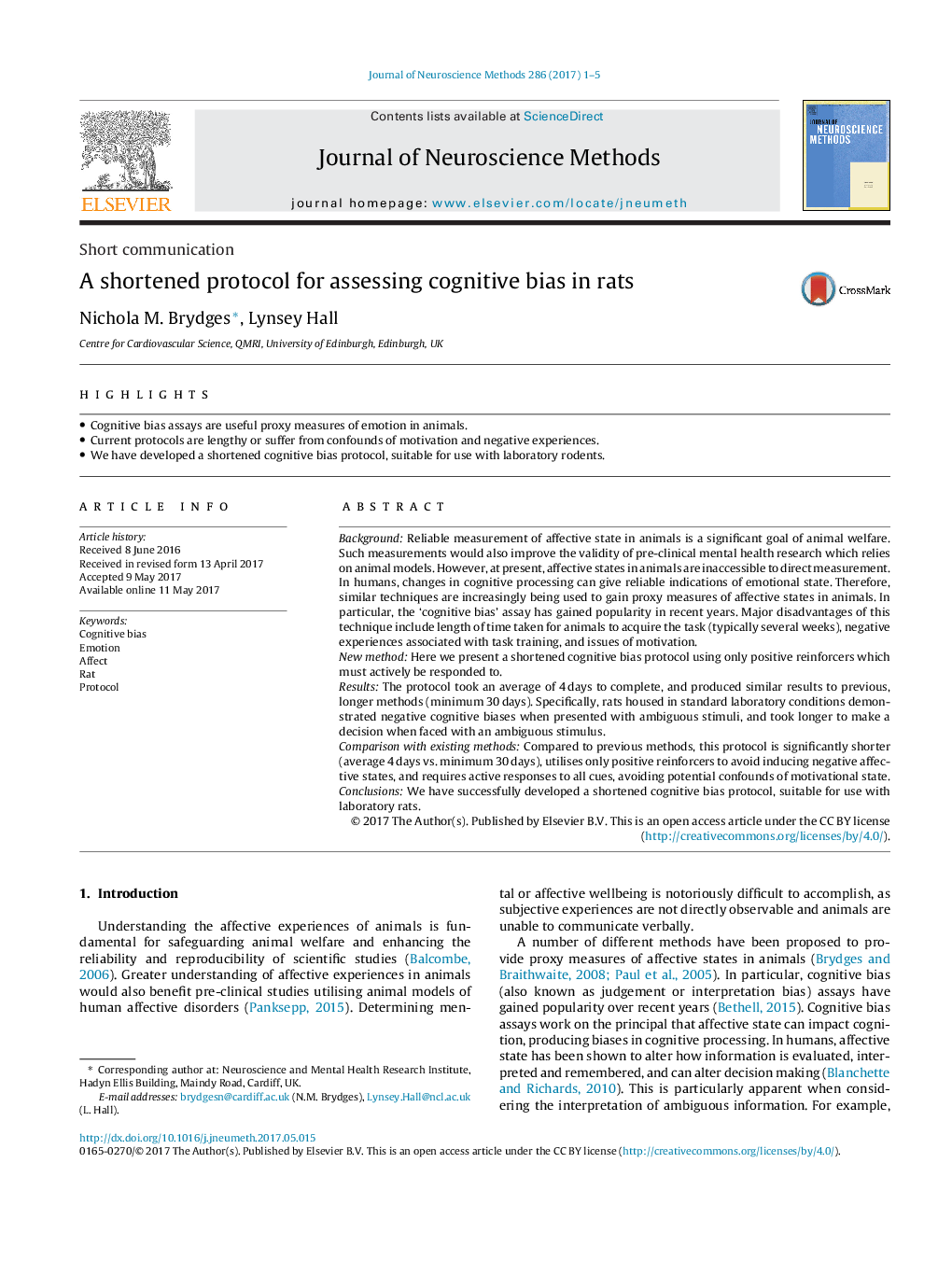| Article ID | Journal | Published Year | Pages | File Type |
|---|---|---|---|---|
| 5737198 | Journal of Neuroscience Methods | 2017 | 5 Pages |
â¢Cognitive bias assays are useful proxy measures of emotion in animals.â¢Current protocols are lengthy or suffer from confounds of motivation and negative experiences.â¢We have developed a shortened cognitive bias protocol, suitable for use with laboratory rodents.
BackgroundReliable measurement of affective state in animals is a significant goal of animal welfare. Such measurements would also improve the validity of pre-clinical mental health research which relies on animal models. However, at present, affective states in animals are inaccessible to direct measurement. In humans, changes in cognitive processing can give reliable indications of emotional state. Therefore, similar techniques are increasingly being used to gain proxy measures of affective states in animals. In particular, the 'cognitive bias' assay has gained popularity in recent years. Major disadvantages of this technique include length of time taken for animals to acquire the task (typically several weeks), negative experiences associated with task training, and issues of motivation.New methodHere we present a shortened cognitive bias protocol using only positive reinforcers which must actively be responded to.ResultsThe protocol took an average of 4Â days to complete, and produced similar results to previous, longer methods (minimum 30Â days). Specifically, rats housed in standard laboratory conditions demonstrated negative cognitive biases when presented with ambiguous stimuli, and took longer to make a decision when faced with an ambiguous stimulus.Comparison with existing methodsCompared to previous methods, this protocol is significantly shorter (average 4Â days vs. minimum 30Â days), utilises only positive reinforcers to avoid inducing negative affective states, and requires active responses to all cues, avoiding potential confounds of motivational state.ConclusionsWe have successfully developed a shortened cognitive bias protocol, suitable for use with laboratory rats.
